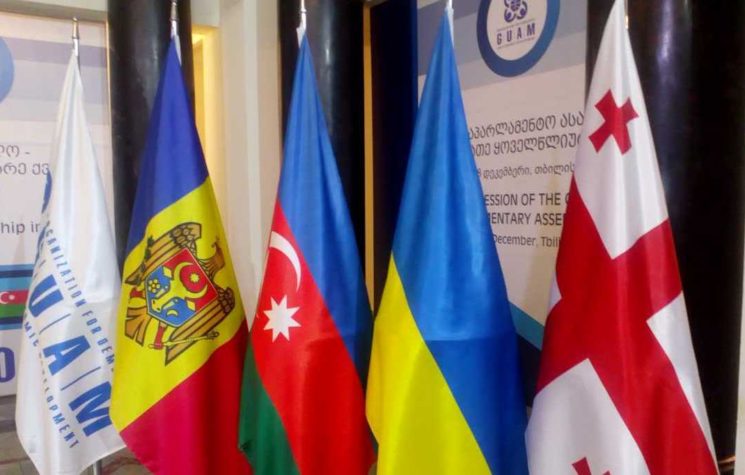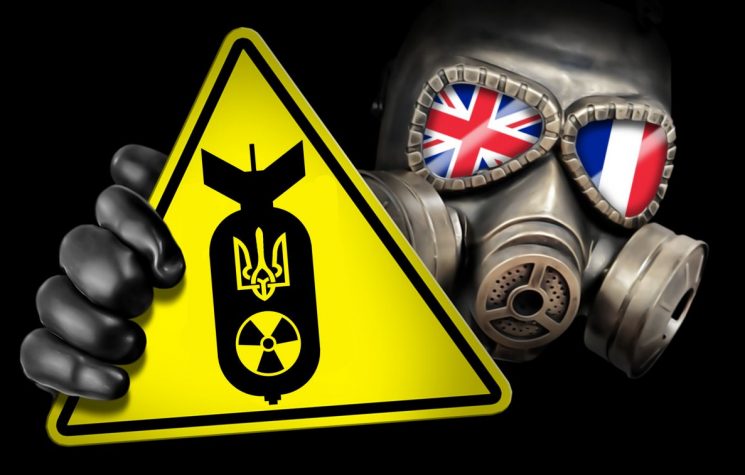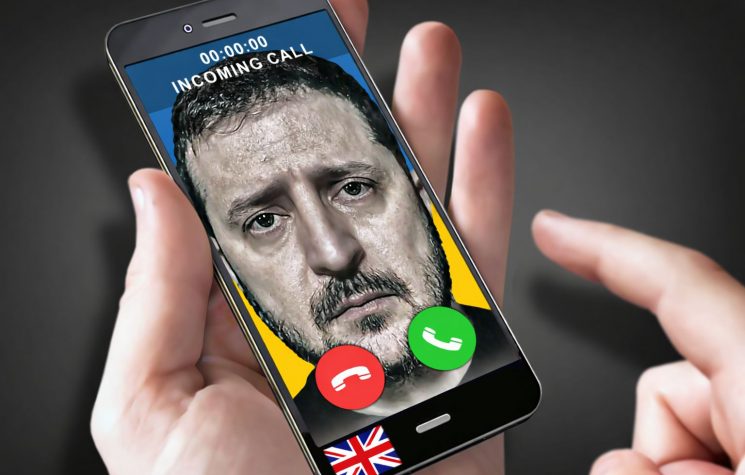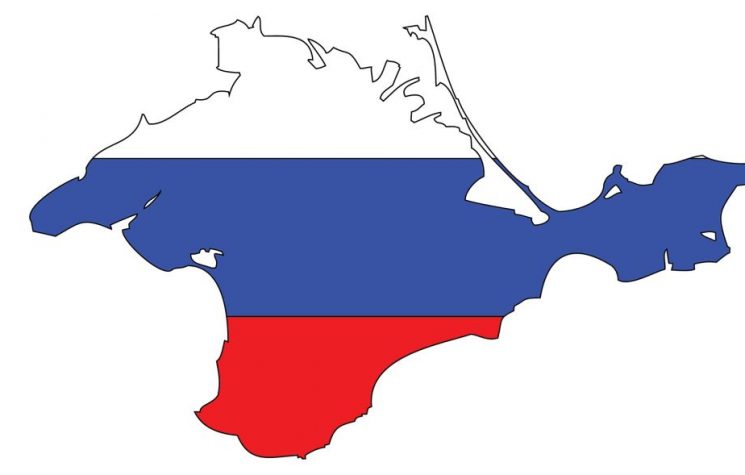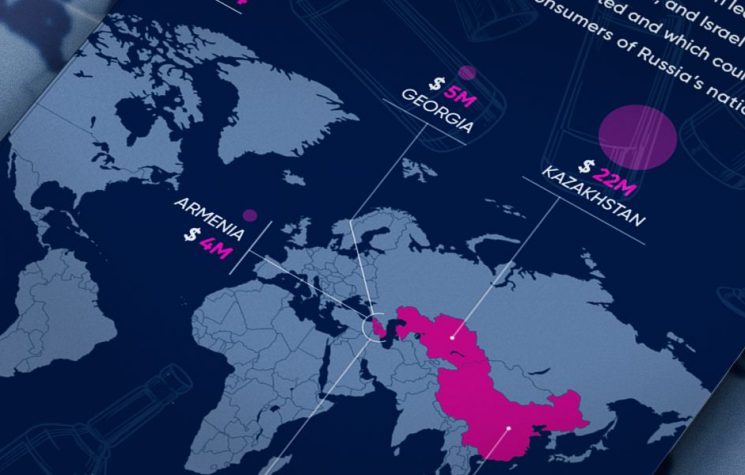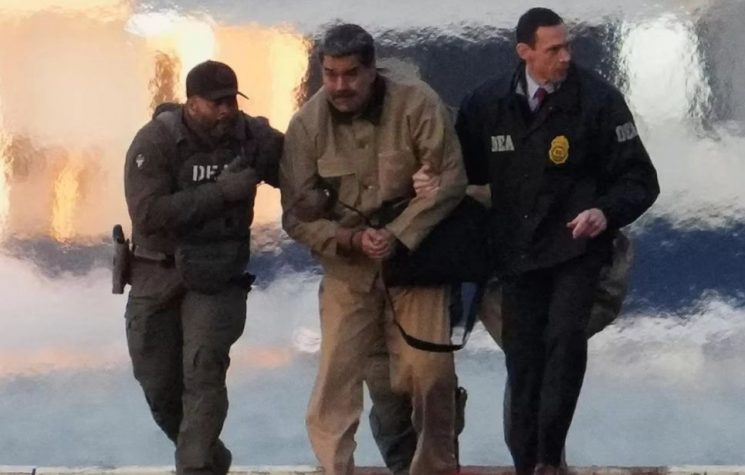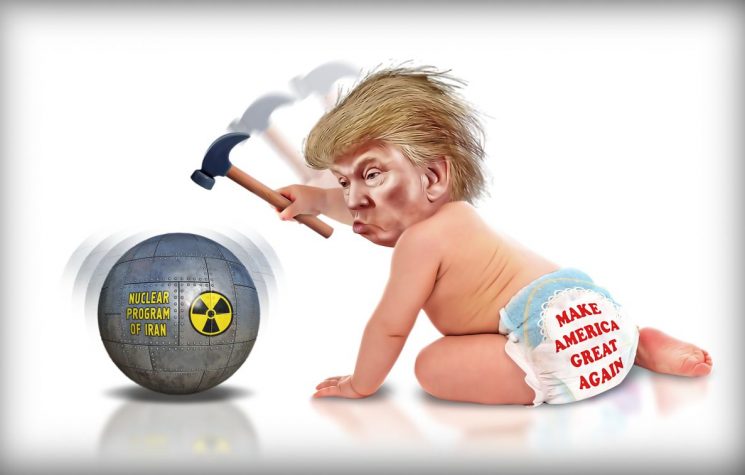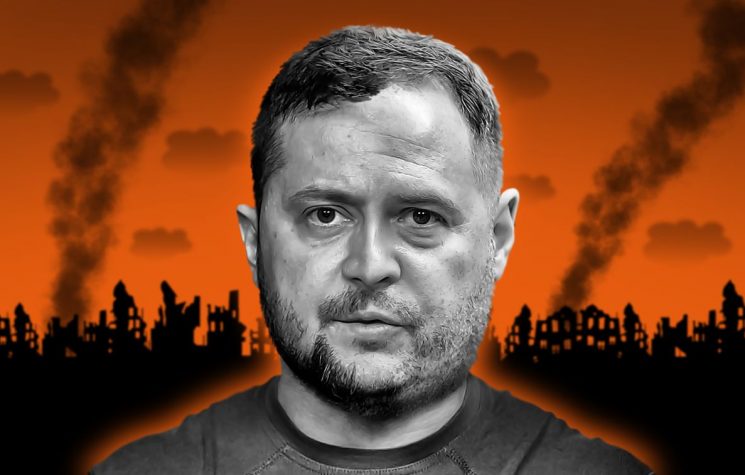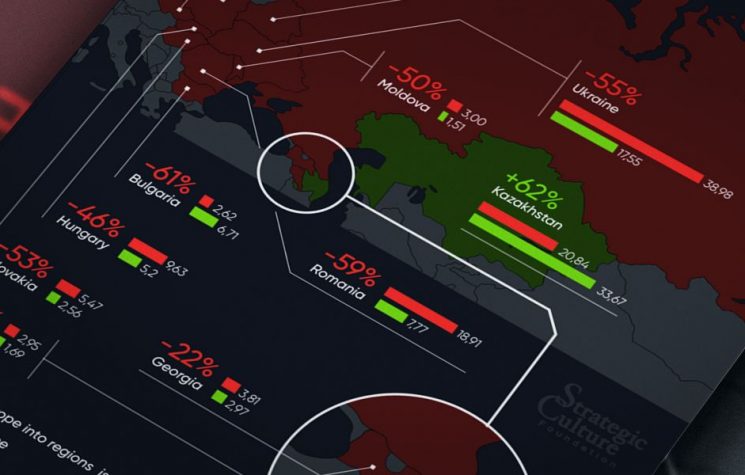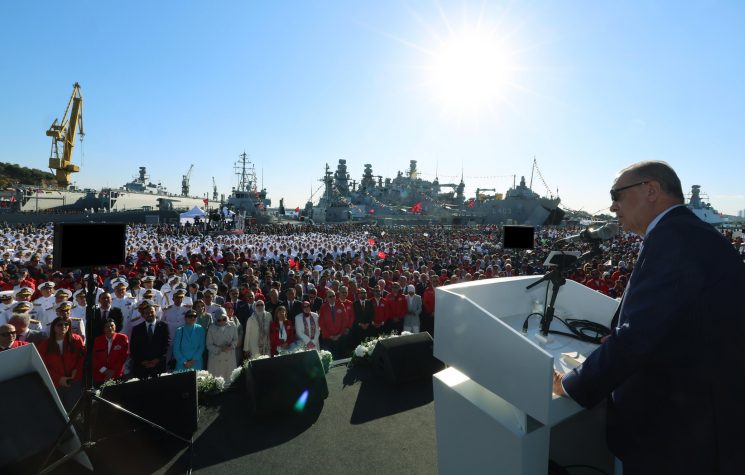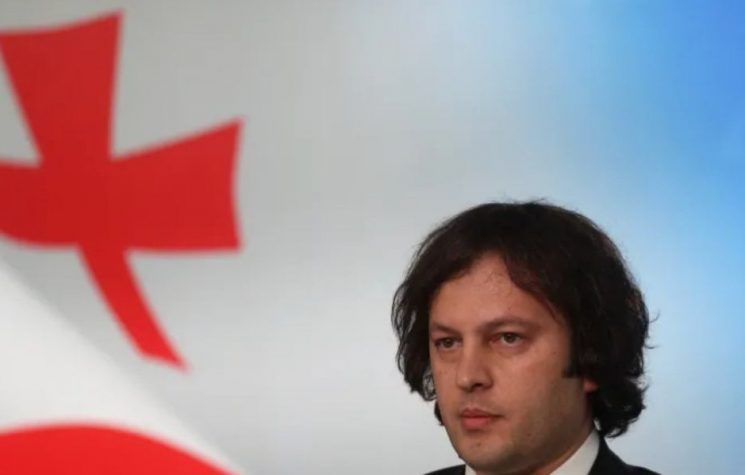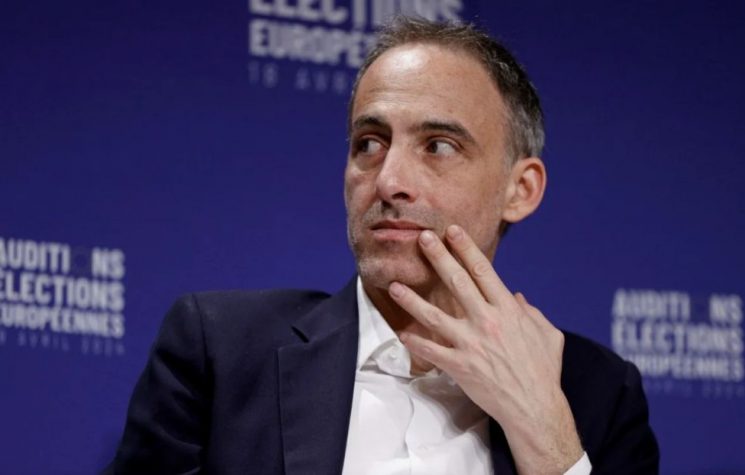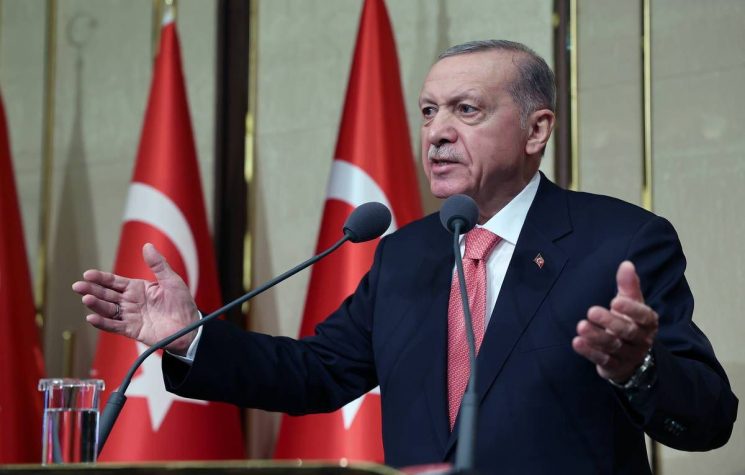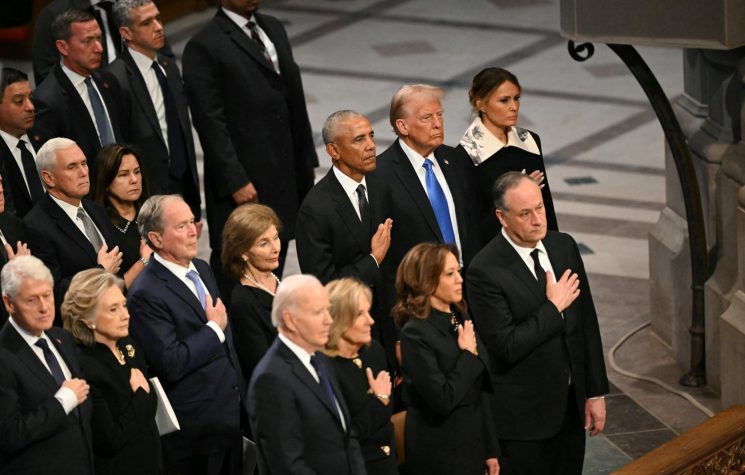The US-NATO alliance is determined to encircle Russia more tightly, and Georgia wants to help it do so, Brian Cloughley writes.
Britain’s Daily Express newspaper is a bizarre publication that specialises in sensationalist raving. Some of its reports are weird beyond imagination, and it went even further than usual into fogs of delusion on April 21 when one of its headlines announced “World War 3: UK CONFRONTS Russia by sending warship to Black Sea.”
The vessel despatched on a “freedom of navigation manoeuvre” by the UK’s Royal Navy is HMS Echo, which cannot be described as a warship. It is “designed to carry out a wide range of survey work, including support to submarine and amphibious operations” and it carries a few cannon and machine guns, but it is difficult to see how it could confront anything more deadly than a prawn-boat. It is, however, part of the grand plan of the US-NATO military alliance which on April 4 “agreed a package of measures to improve NATO’s situational awareness in the Black Sea region and strengthen support for partners Georgia and Ukraine.”
HQ NATO much regrets that its encirclement of Russia does not yet include Georgia or Ukraine. The Brussels sub-office of the Pentagon is trying hard to formally enlist both countries and announced on March 26 that “Georgia is one of the Alliance’s closest partners. It aspires to join the Alliance. The country actively contributes to NATO-led operations and cooperates with the Allies and other partner countries in many other areas. Over time, a broad range of practical cooperation has developed between NATO and Georgia, which supports Georgia’s reform efforts and its goal of Euro-Atlantic integration.”
The day before NATO’s declaration the globe-trotting head of the organisation, Jens Stoltenberg, was in Georgia to attend military exercises. At a meeting with Prime Minister Mamuka Bakhtadze he declared it had been “clearly stated that Georgia will become a member of NATO” and “We will continue working together to prepare for Georgia’s NATO membership,” which was first mooted in 2008 but somehow has never come about.
Non-US NATO military spending totals $264 billion a year, four times that of Russia, and the US will splurge $750 billion next year, so Georgia’s 37,000 military personnel, ten Su-25 combat aircraft and military budget of $380 million are not going to make much of a contribution to NATO, but that’s not the point. What the US-NATO grouping wants is to deploy its armed forces even closer to Russia than at present. When Georgia joins, there will be an opportunity to base tanks, aircraft and missiles right up against the Russian border, as in the Baltic states.
The most interesting observation about Georgia by Radio Free Europe in its account of the Stoltenberg visit was that “The country of some 3.7 million people fought a brief war with Russia in August 2008, and Moscow’s continued military presence on the country’s territory adds to tensions in the region.”
It is never mentioned by the Pentagon, Brussels or the Western media that the “brief war” was entirely the fault of Georgia. Nor is it admitted that if Russia had wished to do so, it could have swept through and occupied the whole of Georgia in a few days without interference by NATO or anyone else.
The European Union decided to conduct an inquiry into the conflict, and in 2009 produced a report which, deep down in its 1,000 pages, states that Georgia initiated the war. This was not at all what the Western world wanted to be told, and the paper is full of observations intended to disguise or excuse Georgia’s military antics. The UK’s Independent online newspaper reported that “The first authoritative study of the war over South Ossetia has concluded that Georgia started the conflict with Russia with an attack that was in violation of international law,” but there are very few people in the Western Establishment who will admit that Georgia was to blame, and they steadfastly support Georgia’s foolhardy aggression.
The EU noted that “There were reportedly more than a hundred US military advisers in the Georgian armed forces when the conflict erupted in August 2008, and an even larger number of US specialists and advisors are thought to have been active in different branches of the Georgian power structures and administration. Considerable military support in terms of equipment and to some extent training was provided by a number of other countries led by Ukraine, the Czech Republic and Israel.” In other words, Georgia was considered a prime ally because it opposed Russia, and the US and its allies helped it prepare for its futile attack.
This is not surprising, given the speech by President George W Bush in Georgia’s capital, Tbilisi, in May 2005. The man who ordered the invasions of Afghanistan in 2001 and Iraq in 2003 was eloquent about Georgia’s military contribution to these disastrous conflicts, and observed that “last year, when terrorist violence in Iraq was escalating, Georgia showed her courage. You increased your troop commitment in Iraq fivefold. The Iraqi people are grateful and so are your American and coalition allies.” Indeed Washington is so grateful to the Georgian government for contributing to its wars (which involved the needless deaths of 32 Georgian soldiers in Afghanistan and five in Iraq), it provides generous aid packages, both civil and military.








